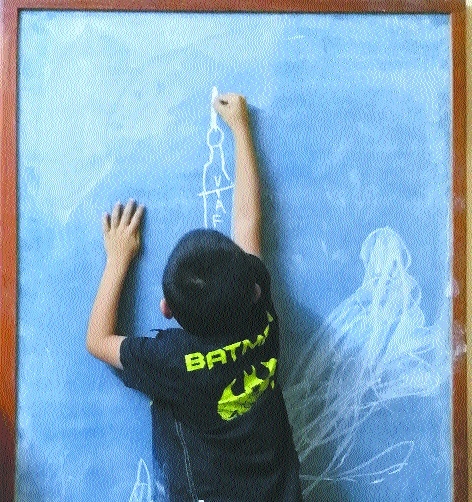Of the blank page
| Date :25-Mar-2020 |

By Vijay Phanshikar :
“You can always edit a bad page, but you can never edit a blank page.”
-Jodi Picoult
That’s a smart sentence, almost silencing anybody. And there is nothing to challenge in such a closed-ended statement by anybody. Every word is true -- you can edit a bad (badly-written) page, but you can’t do that with a blank page. For, on a blank page, there is nothing. But the world of writers and creators and artists has often been charmed by the blank page, challenged by the nothingness that the blank page represents, and chagrined by the insolence with which it stares into the face of the writers and poets and artists. Of course, the blank page has a larger metaphor.
A blank page on the paper -- on which to write something good or to draw a painting or a sketch that is not there, a raw stone to be chiseled into a fine sculpture, an open space in which to design and build a structure of utility and beauty ...! And it is on such a blank page or space that some creation has to be made possible. Faced with the blank page, writers and poets combat what they generally describe as writers’ block. Countless writers spend hours staring at the blank page, trying to extract some point of start -- of a good thought, of a creative spark, of a mental kick to initiate action.
That blankness is so challenging, so engaging, so beautiful yet giving a sickening feeling of emptiness. But let us look at the blank page positively. There is an invitation in that blankness, that openness, that undefinable entity that has all possibilities concealed beneath the surface. Every writer knows that it is in that blank space that creativity takes fine steps and extracts something that was non-existent until that moment. Fine poetry has emerged from that blankness. Fine prose has found expression from that little piece of paper or any material. Fine sculptures, fine paintings, fine words, fine emotions, finest of human ideas and dreams have emerged from the blank page.
True, you may not be able to edit a blank page. But it is from that blank page that human creativity has stemmed since time immemorial. The Vedas came from there. All classics in all languages stepped out of there. All art has emerged from there, and all science has taken shape from there. This is the power of the blank page! It is so inviting -- that a writer wants to write something on it, a poet has to emote using that blankness, a scientist has to start writing calculations on it. And most importantly, a child wants to draw a little doll or an airplane or a spacecraft or a little lamb when he sees the blank page.
Imagine a situation where there was no blank page. All creativity would have found itself in obituary columns -- being mourned upon the loss. But because there is the blank page, it has dared human creativity to come out of hiding in the deep labyrinths of the intellect, and put its fine signature for the human society to recognise. It is because the blank page challenged the human mind, human thought has progressed over time, giving us a fine core of our civilisation, and a roadmap for the future, plus of course, the template for the present. And that is so just because nobody has spoiled that blank page -- to be edited, so to say! Somebody has left the blank page for the humanity upon which to write the new chapter of its own story again and again.